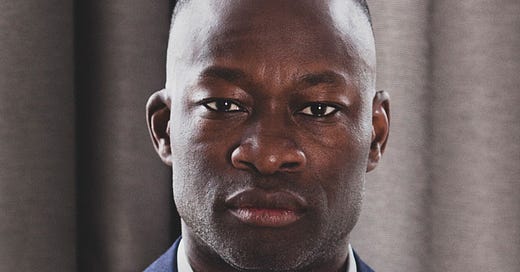Every Second, Every Minute, Every Day: Exerpt From Unapologetic Leadership
GiveAway: Free Paid Subscription
**Exciting News & A Special Offer!**
I'm thrilled to share another excerpt from my book, "Unapologetic Leadership," where I delve into my experiences as a black leader.
For those eager to support and pre-order the Kindle version, I have a special offer:
The first 25 individuals to send me proof of purchase will receive a complimentary one-year membership to our paid subscription.
This membership grants you access to our courses, toolkits, e-books, and even early-bird previews of our shows. Thank you deeply for your support. It means the world!
You can send the screenshot to kwadcast99@gmail.com
Stay tuned for more special offers available for Kwadcast Nation that will start September 12th.
To learn more, check out the link below:
Every Second, Every Minute, Every Day
As a black person in healthcare, I have found that some of my
viewpoints come across as radical and counter to our goals
of keeping people well. The lack of diversity in the board-
room has resulted in the highest needs of marginalized people
ignored or unnecessarily delayed.
I have participated in a few policy discussions with influ-
ential people within Ottawa and the province, giving a voice
for those members of the population who have never been
represented at the table. As the pandemic wore on, the idea
of keeping schools closed resurfaced periodically. I argued
against it.
As the data rolled in after that initial period of unfamil-
iarity with COVID, it was becoming clear that school age
children were not at high risk. Keeping schools closed wasn’t
a balanced or informed decision. I pressed hard to keep
schools open because I was – and still am – concerned for
the mental health of racialized and economically marginal-
ized kids. We needed to weigh the moral cost of a policy and
consider the more nuanced ramifications before slapping out
another blanket directive.
Underprivileged kids may not have a home situation
where on-line learning is even an option. They may not have
a computer or the internet. They may not have a parent who
can afford to stay home with them or be in a work from home
scenario.
In Ontario, the government had been advocating for
more lockdowns with the wrong parameters informing their
decisions – what are the unions going to say? How is that
going to be received with voters? Most decision makers were
too old to have school age children or too privileged to realize
that, for some children, school is going to be the only outlet in
their lives where they can be mentored. For some kids, a coach
or a teacher may be the only role model they have. Taking
that outlet away would undermine their mental and physical
health. If and when those members of our population suffer, it
would inevitably result in more illness in the future.
This is why these core decision-making bodies need
diversity. It gives an alternative, more inclusive, and expanded
perspective in a place where otherwise everyone looks the
same with similar experience and backgrounds.
These folks who could just get their food delivered or
order their supplies online – they didn’t look like the ones
who were delivering that food or packing those orders. Those
people looked like me. Their values didn’t include the essen-
tial workers who were out there with more exposure to the
virus. Their comfort zone was their only perspective and when
everyone else has the same point of view, decisions are made
in a vacuum.
When there was discussion about mandating COVID
vaccinations for students, I spoke out against that too. Again,
having a racialized perspective allowed me to argue that not
everyone is going to buy into that policy, for so many reasons.
Public health policies have not been kind to Black and Indig-
enous peoples. There is an underlying sense of mistrust of the
system that has weaponized “health” to exploit or harm these
folks. Getting these populations engaged in a vaccine drive
isn’t just a given.
The hesitation to participate is culturally ingrained. If we
are to achieve better results we need to acknowledge and
address that reluctance.




